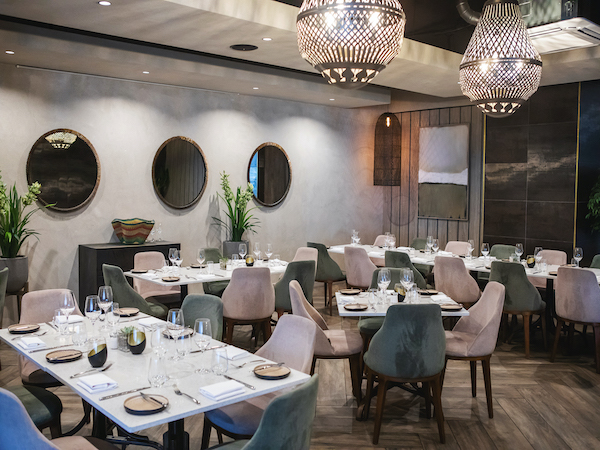News
Review: African tea and rose-gold splendour at Yswara Tea Room in Maboneng
Monday, March 20th, 2017Thando Ndabezitha makes a pilgrimage to the beautiful Yswara Tea Room in Maboneng, Johannesburg.
Fast facts
Parking: On-street and tricky to find
Best for: African tea
Opening times: Tuesday to Sunday 10am to 5pm (closed on Mondays)
Price: a pot of tea for R70
Star rating: Drinks 5, ambience 5, service 5
Drinks
“Where there’s tea there’s hope,” said acclaimed thespian Sir Arthur Wing Pinero. And quite right he was, one can’t help but think, while basking in the late afternoon sun in an enchanting garden in Maboneng, while sipping a freshly brewed cuppa.
Fittingly, Maboneng is also a precinct that’s changed how the inner city is viewed by many living in and outside Joburg. Driving into this place, many still gape in awe when they consider how, less than a decade ago, no one would’ve imagined that the CBD would come to have some of the world’s finest dining establishments and galleries, perfectly juxtaposed by unique, new cafes and bars, drawing influences from South Africa, the Far East and the Mediterranean. The precinct, meaning ‘place of light’ in Sotho, is hope made manifest. And tucked away in the corner of Albrecht and Commissioner – amid a cheery sculpture garden where a parodic portrayal of Charles Bell’s iconic Jan van Riebeek portrait stares down at you from a mural; construction workers busy themselves with the work of urban revitalisation; eateries dwell together as neighbours, and an art gallery looms upstairs – is Yswara. Hope incarnate, with its magnificent collection of 29 different varieties of the leaves – all ethically sourced and African.
Africans pride themselves in having some of the world’s most established and advanced tea cultures. Kenya is the world’s largest producer of tea, Malawi is the continent’s oldest producer, and South Africa, while not a heavyweight globally, still holds its own with the well-recognised and respected indigenous rooibos and honeybush teas.
For just R70 for a freshly brewed pot of any of the aptly named Seven Wonders of Africa, Kingdoms of Africa, African Queens or African Values teas, an Yswara cuppa isn’t just an experience for the taste buds, but one for every sense. The rich leaves take on a life of their own, each with a robust taste and distinct scent.
Take the popular Queen Nandi tea from the African Queens collection, for example, with its fruity and luscious coconut and mango combination, or Ibimanuka, from the African Kingdoms collection, with its vivid and opulent taste and smell. You don’t have to be much of a tea lover – or – drinker – to experience this tea room as a very special and transcendental moment.
No food is served here, but you are welcome to bring your own or order from neighbouring restaurants, including Cube Tasting Kitchen.
Service
The term Ubuntu sums up what is generally considered universally as the distinctive warmth and generosity with which Africans treat each other and others. Ubuntu is what is shown to each person who enters the Yswara Tea Room, embodying the thoroughly African ethos espoused by the brand.
A post shared by Esther Narindwa Martins (@narindwa_) on
Ambience
Rose gold décor and ornaments, pink palettes and lattice designs make this flagship store simultaneously lush and instantly welcoming. The tearoom is evocative of a Moroccan tea house.
And…
Check out the Hazard gallery while you’re at it.
Eat Out critics dine unannounced and pay for their meals in full. Read our full editorial policy here.
Have you been to Yswara Tea Room? Write a review now.
This little tea “shrine” has my hear and all of my tastebuds . . . . . #maboneng #yswara #thecosmopolitan #johannesburg #explorejohannesburg #explorejozi #instajozi #design #africandesign #minimalist A post shared by Esther Narindwa Martins (@narindwa_) on












